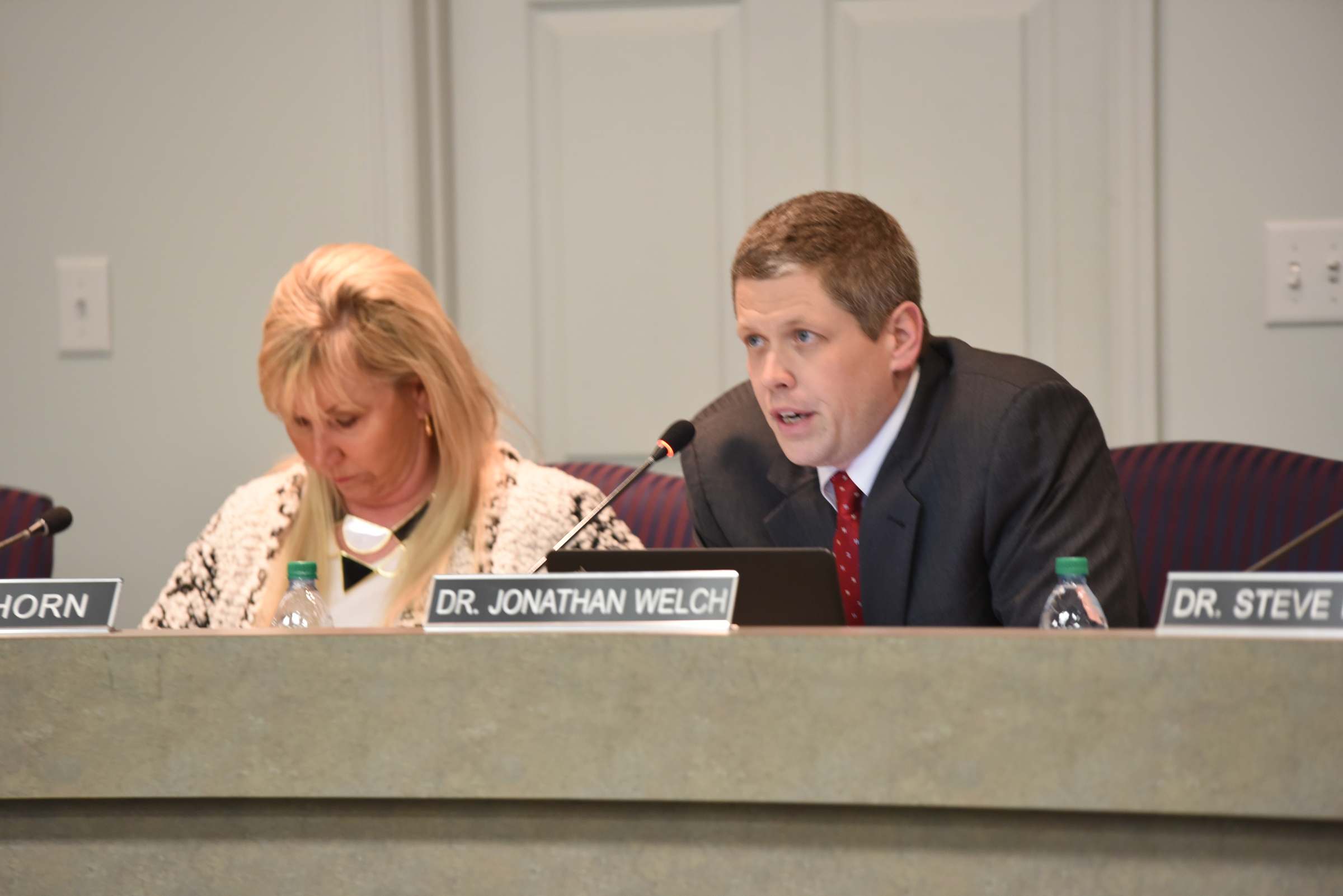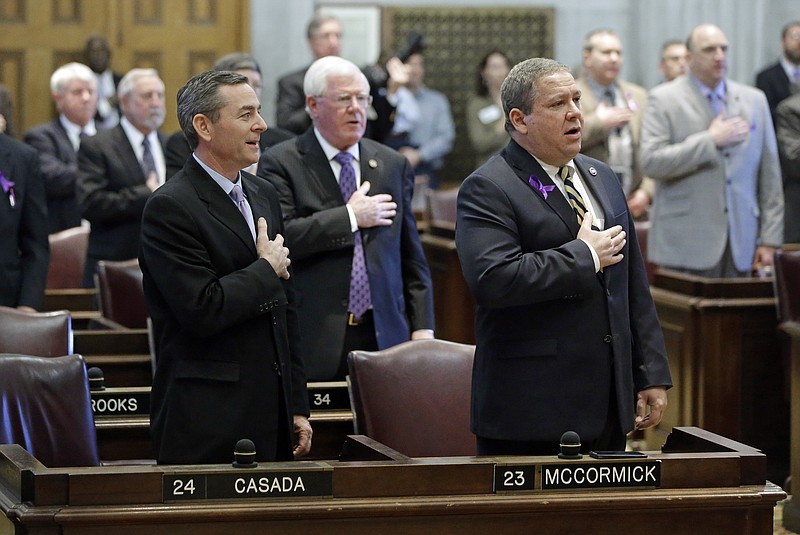NASHVILLE -- A school voucher bill is on its way to the Tennessee House floor after winning approval Tuesday in the Calendar and Rules Committee.
The "Tennessee Choice and Opportunity Scholarship Act" was approved on a voice vote with no debate. It's been scheduled for floor debate Monday.
Proponents and opponents are predicting a fierce floor fight over supporters' years-long quest to allow parents to use tax dollars to allow low-income children to attend private schools, including religious schools.
 Hamilton County School Board Chairman Jonathan Welch reads a prepared statement during a public session concerning the Ooltewah High School basketball rape case Wednesday night in front of an overflow crowd. Welch immediately adjourned the meeting with no other comments or discussion allowed. School board member Donna Horn, left, sits alongside.
Hamilton County School Board Chairman Jonathan Welch reads a prepared statement during a public session concerning the Ooltewah High School basketball rape case Wednesday night in front of an overflow crowd. Welch immediately adjourned the meeting with no other comments or discussion allowed. School board member Donna Horn, left, sits alongside.Last year, the Senate companion bill sponsored by Sen. Todd Gardenhire, R-Chattanooga, overwhelmingly passed the GOP-run chamber.
But the Republican-led House over the past five years has proven to be a tougher nut to crack, with a number of Republicans joining with Democrats to keep the bill in the Finance Subcommittee.
That all changed last month with a new chairman of the subcommittee. The bill scraped through the full Finance Committee by a single vote with several Republicans opposed.
The bill lets parents of children who qualify for free or reduced-price lunches, a key measure of poverty, apply for a voucher if their school falls within one of the state's bottom 5 percent of schools.
Opponents will make their last stand on the House floor.
"You know, obviously the voucher interest groups spent a million dollars in the last campaign cycle," Democratic Caucus Chairman Mike Stewart of Nashville said. "They are very aggressive pushing this agenda. That'll have to be balanced against the fact that vouchers have failed everywhere they've been tried."
Stewart said he is "thinking they will fail, but it's unclear" with regard to the vote in the 99-member chamber.
Vouchers would be limited to 5,000 children in the first year, gradually increasing to a 20,000-student cap by the fourth year. Public schools would lose almost $17 million in per-pupil funding in the first year. Vouchers would amount to $6,628 each.
But the bill has another provision that says if the vouchers aren't entirely used up by those students, vouchers could be extended to low-income children in any Tennessee school district that has just one failing school, even if the school they're in is not failing.
Supporters say the Tennessee Choice and Opportunity Scholarship Act helps low-income students at failing public schools.
"At the end of the day, I think it's an opportunity for these children who are in Hamilton County," said Rep. Patsy Hazlewood, R-Signal Mountain, last week after voting for the voucher bill in the full House Finance Committee. She noted that some Hamilton County schools "have been on that 'poorly performing' list for some time, and this is just an opportunity for parents who want to give their children a better chance to take some money and try to do that."
Opponents argue school voucher programs haven't worked well in states that have adopted them. They also say vouchers offer false hope to many and, ultimately, may result in potentially crippling losses of funds for public education.
Donna Horn, a Hamilton County Board of Education member and former teacher, said Tuesday she believes the legislation is "detrimental to Hamilton County" public schools. Moreover, Horn said, it could harm some public school students transferring to private schools if they're not "prepared to do the work or meet expectations of curriculum."
"I can just see in two years that child coming back to public schools," she said. "Two years wasted."
Critics at the state Capitol, meanwhile, have raised concerns about government money going to help fund Christian, Jewish, Muslim and other religious schools.
Rep. David Alexander, R-Lewisberg, has said he plans to push a floor amendment that would require any private school accepting vouchers to certify it won't teach that any sacred or secular law is "above the Constitution" or teach ideas "that present females as less than equal to males."
They also shouldn't "teach in any way that sanctions suppression of free speech by invoking blasphemy," Alexander said last week when the bill passed through the full Finance Committee.
In other action Tuesday, the Calendar and Rules Committee sent to the floor a resolution that calls for a national convention on amending the U.S. Constitution to curb what it calls "abuses of power" by the federal government. It also would impose term limits on Congress.
Rep. Sheila Butt, R-Columbia, is sponsor of the resolution. The Senate already has approved the companion resolution, sponsored by Sen. Mike Bell, R-Riceville. If approved, Tennessee would become the fifth state to approve the specific language after Alabama, Georgia, Florida and Alaska. It takes approval from 34 states to convene the convention.
Contact Andy Sher at asher@timesfreepress.com, 615-255-0550 or follow via twitter at AndySher1.

